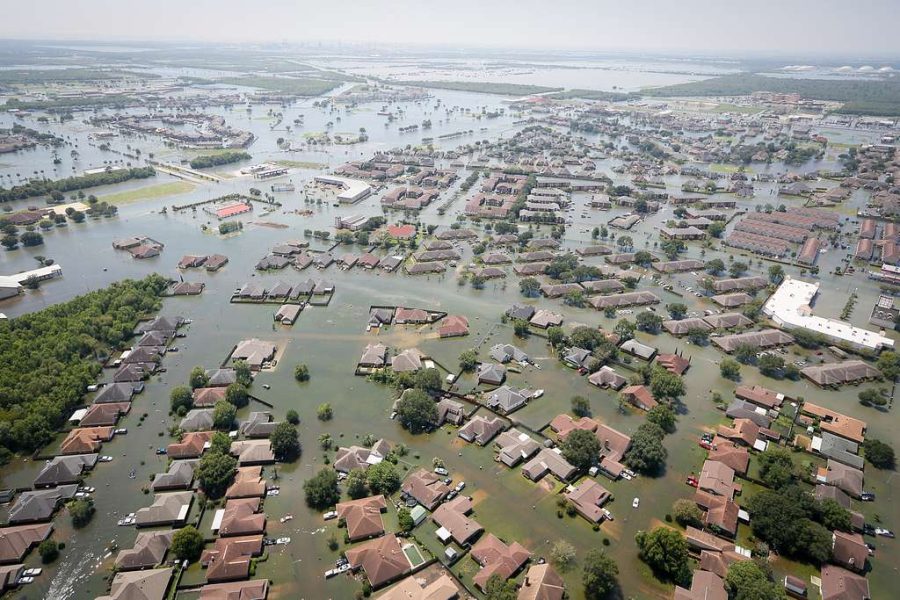Students confront climate concerns, suggest solutions
Creative Commons (GetArchive Collections)
In just the last decade, the United States has faced over a dozen “once-in-500-years” storms due to climate change, including Hurricane Harvey in 2017, shown in the picture above.
December 6, 2022
On Nov. 8 during the Mav Literary Fest assembly, visiting author Anita Jaisinghani enlightened the student body about the importance of incorporating raw, healthy fruits and vegetables into one’s everyday diet. While Jaisinghani mainly focused on food, she also emphasized the role sustainability plays in the kitchen and how it can significantly impact the environment.
To Jaisinghani, sustainability means composting, restricting the use of single-use plastics and having Meatless Mondays. Currently, St. John’s clubs like ECOS and the Climate Change Club are trying to incorporate some of these practices into the School. They are also trying to increase environmental consciousness throughout the community by hosting educational forums and events, such as Earth Week.
Recently, the clubs have especially focused on recycling as it reduces the amount of trash going into local landfills and decreases methane emissions. Around the start of the school year, ECOS and CCC put signs on all of the School’s recycling bins telling students which types of items they can or cannot recycle.
Last September, ECOS and CCC held an assembly that shed light on current environmental issues caused by climate change and on ways that students can help out the environment. In particular, the clubs pointed out that, like most institutions, the School emits a large amount of carbon daily. Junior Hammad Younas, ECOS co-president and CCC student leader, says that the School could reduce its carbon emissions substantially by using renewable energy sources, such as solar or wind energy.
Another main contributor to global carbon emissions is the excessive use of gasoline cars. At St. John’s, most students drive gas-powered vehicles instead of electric vehicles. On Nov. 7, for instance, only eight out of eighty cars parked in the Senior Lot were electric or hybrid.
Individually, there are many more actions that students can take to support the environment. Habits like unplugging outlets when not in use, upcycling and recycling can make a big difference in the long run. Showing up to events and projects led by ECOS and CCC is another great way for students to help out the environment.
Overall, junior Ava Mostyn says that being environmentally conscious is the first step toward creating more impactful initiatives that can support the environment.
“If we were more conscious, it would be easier to implement larger-scale eco-friendly programs,” Mostyn said.
Biology teacher Emily Reppart agrees that any sort of action, big or small, will leave a positive impact on the environment.
“It’s our future, and we are going to be the ones that ultimately make a difference in the health of our environment,” Reppart said. “If we all make small impacts, then we’re collectively making a bigger impact than we realize.”






